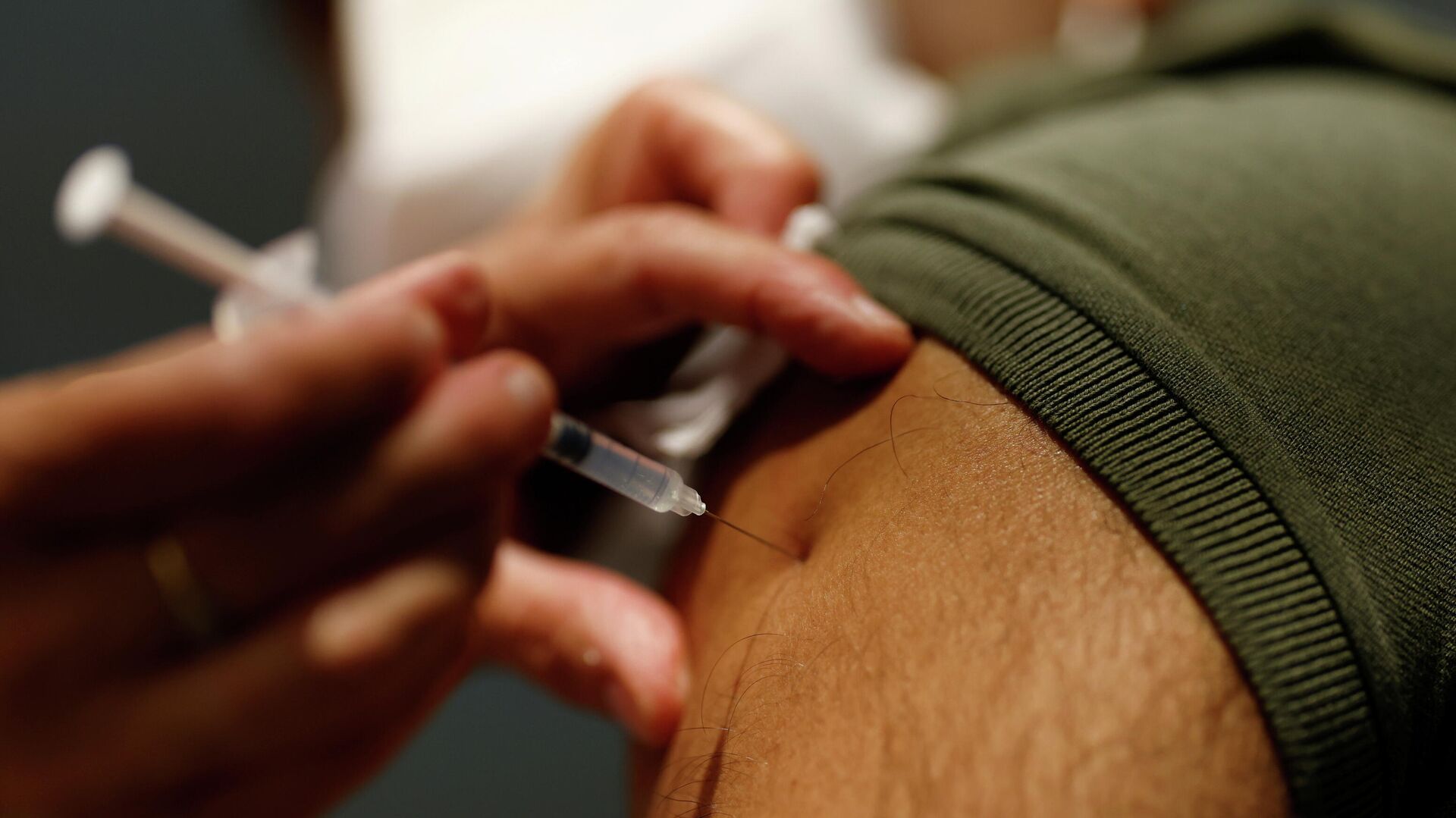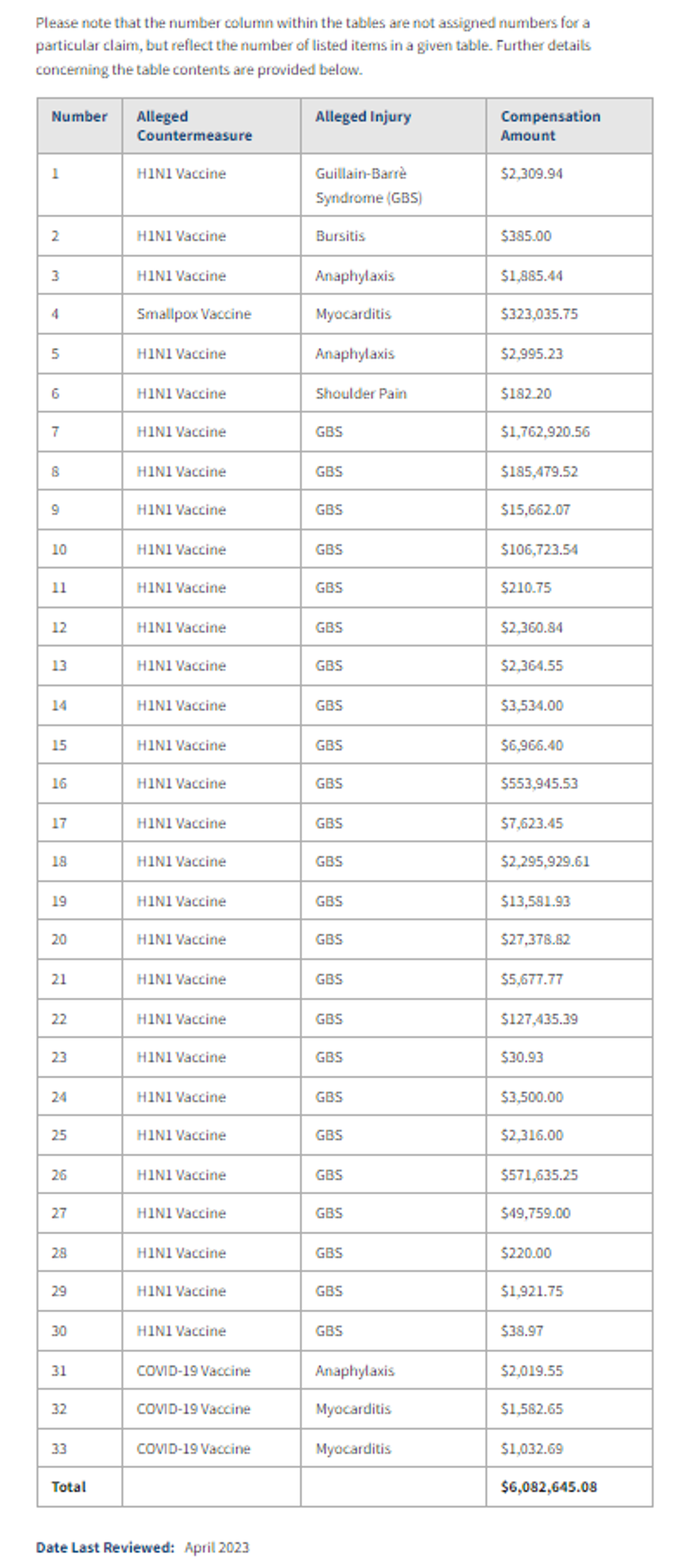https://sputnikglobe.com/20230421/covid-19-vaccine-payouts-why-the-us-so-reluctant-to-make-even-the-smallest-award-1109699451.html
COVID-19 Vaccine Payouts: Why the US So Reluctant to Make Even the Smallest Award
COVID-19 Vaccine Payouts: Why the US So Reluctant to Make Even the Smallest Award
Sputnik International
According to American government data, plaintiffs paralyzed, suffering from myocarditis – an inflammation of the heart muscle - acute allergic reactions, or otherwise impaired after being jabbed with Pfizer and Moderna's monovalent vaccines have been struggling to get any compensation.
2023-04-21T13:24+0000
2023-04-21T13:24+0000
2023-04-21T13:24+0000
us
covid-19
vaccines
pfizer
moderna
compensation
liability
americas
https://cdn1.img.sputnikglobe.com/img/07e5/09/17/1089332545_0:303:3103:2048_1920x0_80_0_0_1ca9a5ab0773b1c4b2dce5a1704026ab.jpg
According to American government data, plaintiffs paralyzed, suffering from myocarditis – an inflammation of the heart muscle - acute allergic reactions, or otherwise impaired after being jabbed with Pfizer and Moderna's monovalent vaccines have been struggling to get any compensation.A mere three out of more than 8,000 applicants have been successful so far in getting anything out of the specially tailored compensation program. But the triumph was short-lived: the combined awards were so paltry they didn't even total $5,000.Sputnik examines why the program isn't working, and why the plaintiffs are unable to win their cases.People in the US complained of the adverse effects of vaccinations throughout the coronavirus pandemic. The likely side-effects and symptoms are broad-ranging, such as shortness of breath, nerve pain, headaches, severe heart palpitations, pericarditis, myocarditis, muscle aches and joint pain.Generally, the sole legal recourse available for those hoping for cash compensation after any vaccination 'injury' are two programs: Countermeasures Injury Compensation Program (CICP), and the Vaccine Injury Compensation Program (VICP), run by the Health Resources and Services Administration. The American Department of Health and Human Services created VICP in 1988. The idea was to have a means of compensating for injuries from covered childhood vaccines.COVID-19 vaccines are covered under the Countermeasures Injury Compensation Program (CICP), but not the National Vaccine Injury Compensation Program, the HRSA states on its website.The CICP, “provides compensation to people who are injured or die from a vaccination, medication, device or other so-called countermeasure necessary to prevent, treat or fight a pandemic, epidemic or security threat,” according to the program’s website.But freshly released government data showed that getting compensation with the CICP is a bit of a long shot. The CICP data published covered Fiscal Years 2010 – 2023 (as of 1 April 2023). It revealed that out of a total 11,425 filed claims, 10,719 were pending or in review and 684 had been denied.The three cases that did result in cash payments are as follows:One other myocarditis patient had a compensation claim rejected over perceived lack of eligible expenses.No claims have been compensated as of 1 March. Furthermore, 21 applications filed had been determined eligible for compensation, but not paid. In the case of the CICP, the vaccine compensation is limited to unreimbursed medical expenses, along with an annual $50,000 in lost wages because of the side-effects. There is also a death benefit amounting to around $422,035.Flawed CICP Both claimants and experts studying the problem believe that the CICP program is profoundly flawed, with even "slam dunk approvals" getting rejected. First, there is the backlog. This began once the COVID-19 vaccines were added to the program's countermeasures and caused the number of claims to rocket. The response was additional staff hiring and growing budget levels for staff and contractors. From an estimated under $3 million in fiscal year 2021, it reached a reported $9.5 million in 2023. The compensation budget is also reported by media outlets to have soared from less than $1 million in 2021 to $5 million in 2023.Boosted resources have failed to make a dent, by all accounts and purposes.According to a cited CICP spokesman, the program is "the payer of last resort and can only reimburse or pay for reasonable medical services or items, or lost employment income that are not covered by other third-party payers, such as health insurance, Veterans Affairs benefits, or Workers’ Compensation."Those sounding the alarm about the difficulty of winning vaccine injury compensation claims have suggested that the Vaccine Injury Compensation Program, which covers claims for 16 common vaccines, including whooping cough, flu, and polio, might be better equipped to handle such COVID-19--related cases.The VICP is longer established and more financially "generous", advocates argue. It is hailed as acting more like a court than a lagging administrative process. In the case of the VICP, a claimant is afforded an opportunity to make their case in court and even appeal a ruling, whereas under the CICP, there is no right of appeal - which has been a very sore bone of contention. The CICP also fails to cover legal fees or compensate for pain and suffering. Cash pay-outs, including legal fees, are funded by a 75-cent tax per vaccine. Since the program was made operational in 1988, plaintiffs have been awarded a total of $4.9Bln. Hurdles AheadTransferring COVID-19 vaccine claims to the VICP program has faced difficulties. One issue was the need for the vaccines themselves to be recommended for children - then it would allow, potentially, for the inclusion of the jabs in the VICP list, as this program covers childhood vaccines. Recently, the Centers for Disease Control and Prevention recommended the shots for children. Another tricky aspect is that Congress must pass an excise tax to fund the compensation program. Finally, the vaccines must be added by the Secretary of Health and Human Services to the official Vaccine Injury Table. There is no clarification regarding the latter two aspects. And, of course, transferring COVID vaccines from the CICP to the VICP would potentially result in even more backlog.Liability ShieldExacerbating the situation is that the actual COVID-19 vaccine makers, such as the US pharmaceutical and biotechnology companies Moderna, Inc or Pfizer Inc, are protected against any liability, and as such aren't a party to CICP proceedings over damage or injury claims. This is rooted in a declaration under the 'Public Readiness and Emergency Preparedness Act', dating to 10 March 2020. Furthermore, according to Health and Human Services Secretary Xavier Becerra, the act is set to be amended as on 10 April President Joe Biden signed legislation to end the COVID-19 national emergency officially. After it has been amended, liability protection will be applied to “all COVID-19 vaccines and treatments for which distribution is currently directed by the United States Government.”'Compelling Evidence Hurdle'Another tremendous challenge facing the applicants for compensation is gathering “compelling, reliable, valid medical and scientific evidence” to prove they suffered a serious injury coming as a “direct result” of the COVID-19 vaccine. There are several reasons this is extremely challenging: first, the COVID-19 pandemic has been around only a short time compared with various other illnesses that humanity has been vaccinated against. The National Vaccine Injury Compensation Program for resolving vaccine injury petitions deals with jabs fighting such diseases.Unlike with, say, smallpox countermeasures, the US government has no published table specifying injuries that are associated with the COVID-19 vaccines.COVID-19 vaccination injury, unless diagnosed immediately after the jab, can purportedly be hard to detect, claim medical professionals. Not enough patient data has been gathered around vaccination injury, which makes proving your point very difficult for a claimant. There have also purportedly been concerns among medical professionals that information concerning vacccine injury could be seized upon by the anti-vax movement.Overall, HRSA Data showed that of 706 COVID-19 vaccine-linked claims, ranging from meningitis, Guillain-Barre syndrome, heart attacks, seizures and, ultimately, death to have been deliberated over by the CICP, 97 percent have been rejected. Even in the case of the 22 applicants that were successful, 18 have still not yet been told what cash payment they can expect.The CICP program is, "the payer of last resort and can only reimburse or pay for reasonable medical services or items, or lost employment income that is not covered by other third-party payers, such as health insurance, Veterans' Affairs benefits, or Workers’ Compensation," a spokesman was cited as telling US media.
https://sputnikglobe.com/20210118/california-recommends-to-suspend-moderna-vaccine-batch-due-to-high-number-of-adverse-events-1081799763.html
https://sputnikglobe.com/20201224/new-york-healthcare-worker-shows-severe-allergic-response-after-pfizer-vaccin-reports-say-1081556585.html
https://sputnikglobe.com/20220915/south-africa-second-death-from-rare-syndrome-linked-to-jj-covid-19-vaccine-confirmed--1100794413.html
americas
Sputnik International
feedback@sputniknews.com
+74956456601
MIA „Rossiya Segodnya“
2023
News
en_EN
Sputnik International
feedback@sputniknews.com
+74956456601
MIA „Rossiya Segodnya“
Sputnik International
feedback@sputniknews.com
+74956456601
MIA „Rossiya Segodnya“
covid-19 vaccine compensation,us government payments, pfizer, moderna, mrna technology vaccines, plaintiffs, countermeasures injury compensation program, cicp, vaccine injury compensation program, vicp, paralyzed, suffering from myocarditis, protected against any liability,
covid-19 vaccine compensation,us government payments, pfizer, moderna, mrna technology vaccines, plaintiffs, countermeasures injury compensation program, cicp, vaccine injury compensation program, vicp, paralyzed, suffering from myocarditis, protected against any liability,
COVID-19 Vaccine Payouts: Why the US So Reluctant to Make Even the Smallest Award
As the COVID-19 pandemic raged across the world, vaccination programs, including those in the US, helped millions of people avoid severe illness, hospitalization and death. But although generally beneficial, the jabs - such as those created by Pfizer and Moderna based on mRNA technology - have also caused adverse reactions in some recipients.
According to American
government data, plaintiffs paralyzed, suffering from myocarditis – an inflammation of the heart muscle - acute
allergic reactions, or otherwise impaired after being jabbed with Pfizer and Moderna's monovalent vaccines have been struggling to get any compensation.
A mere three out of more than 8,000 applicants have been successful so far in getting anything out of the specially tailored compensation program. But the triumph was short-lived: the combined awards were so paltry they didn't even total $5,000.
Sputnik examines why the program isn't working, and why the plaintiffs are unable to win their cases.
People in the US complained of the adverse effects of vaccinations throughout the coronavirus pandemic. The likely side-effects and symptoms are broad-ranging, such as shortness of breath, nerve pain, headaches, severe heart palpitations, pericarditis, myocarditis, muscle aches and joint pain.
Generally, the sole legal recourse available for those hoping for cash compensation after any vaccination 'injury' are
two programs:
Countermeasures Injury Compensation Program (CICP), and the
Vaccine Injury Compensation Program (VICP), run by the Health Resources and Services Administration. The American Department of Health and Human Services created VICP in 1988. The idea was to have a means of compensating for injuries from covered childhood vaccines.
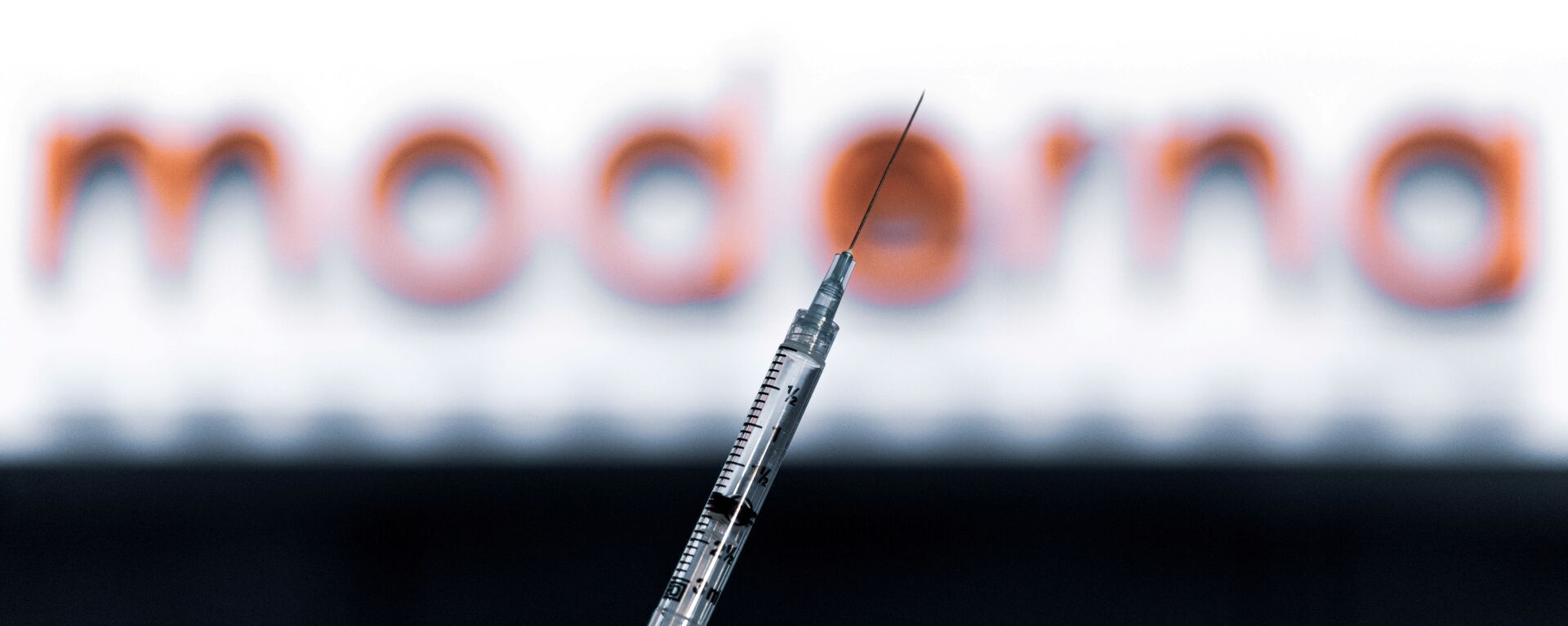
18 January 2021, 08:13 GMT
COVID-19 vaccines are covered under the Countermeasures Injury Compensation Program (CICP), but not the National Vaccine Injury Compensation Program, the HRSA
states on its website.
The CICP, “
provides compensation to people who are injured or die from a vaccination, medication, device or other so-called countermeasure necessary to prevent, treat or fight a pandemic, epidemic or security threat,” according to the
program’s website.
But freshly released government
data showed that getting compensation with the CICP is a bit of a long shot. The CICP data published covered Fiscal Years 2010 – 2023 (as of 1 April 2023). It revealed that out of a total 11,425 filed claims, 10,719 were pending or in review and 684 had been denied.
The three cases that did result in cash payments are as follows:
$2,020 received from the CICP by an individual who suffered anaphylactic shock to a vaccine shot.
$1,583 for a person whose jab brought on a bout of myocarditis.
A payment worth $1,033 to a patient also suffering from an inflammation of the heart muscle after a vaccine jab.
One other myocarditis patient had a compensation claim rejected over perceived lack of eligible expenses.
No claims have been compensated as of 1 March. Furthermore, 21 applications filed had been determined eligible for compensation, but not paid.
In the case of the CICP, the vaccine compensation is limited to unreimbursed medical expenses, along with an annual $50,000 in lost wages because of the side-effects. There is also a death benefit amounting to around $422,035.
Both claimants and experts studying the problem believe that the CICP program is profoundly flawed, with even "slam dunk approvals" getting rejected.
First, there is the backlog. This began once the COVID-19 vaccines were added to the program's countermeasures and caused the number of claims to rocket. The response was additional staff hiring and growing budget levels for staff and contractors. From an estimated under $3 million in fiscal year 2021, it reached a reported $9.5 million in 2023. The compensation budget is also reported by media outlets to have soared from less than $1 million in 2021 to $5 million in 2023.
Boosted resources have failed to make a dent, by all accounts and purposes.
According to a cited CICP spokesman, the program is "the payer of last resort and can only reimburse or pay for reasonable medical services or items, or lost employment income that are not covered by other third-party payers, such as health insurance, Veterans Affairs benefits, or Workers’ Compensation."
Those sounding the alarm about the difficulty of winning vaccine injury compensation claims have suggested that the Vaccine Injury Compensation Program, which covers claims for 16 common vaccines, including whooping cough, flu, and polio, might be better equipped to handle such COVID-19--related cases.
The VICP is longer established and more financially "generous", advocates argue. It is hailed as acting more like a court than a lagging administrative process. In the case of the VICP, a claimant is afforded an opportunity to make their case in court and even appeal a ruling, whereas under the CICP, there is no right of appeal - which has been a very sore bone of contention. The CICP also fails to cover legal fees or compensate for pain and suffering. Cash pay-outs, including legal fees, are funded by a 75-cent tax per vaccine. Since the program was made operational in 1988, plaintiffs have been awarded a total of $4.9Bln.
Transferring COVID-19 vaccine claims to the VICP program has faced difficulties. One issue was the need for the vaccines themselves to be recommended for children - then it would allow, potentially, for the inclusion of the jabs in the VICP list, as this program covers childhood vaccines. Recently, the Centers for Disease Control and Prevention
recommended the shots for children. Another tricky aspect is that Congress must pass an excise tax to fund the compensation program. Finally, the vaccines must be added by the Secretary of Health and Human Services to the official Vaccine Injury Table. There is no clarification regarding the latter two aspects. And, of course, transferring COVID vaccines from the CICP to the VICP would potentially result in even more backlog.
Exacerbating the situation is that the actual COVID-19 vaccine makers, such as the US pharmaceutical and biotechnology companies
Moderna, Inc or Pfizer Inc, are protected against any liability, and as such aren't a party to CICP proceedings over damage or injury claims. This is rooted in a declaration under the 'Public Readiness and Emergency Preparedness Act', dating to 10 March 2020. Furthermore, according to Health and Human Services Secretary Xavier Becerra, the act is set to be amended as on 10 April President Joe Biden signed legislation to end the COVID-19 national emergency officially. After it has been amended, liability protection will be applied to “
all COVID-19 vaccines and treatments for which distribution is currently directed by the United States Government.”
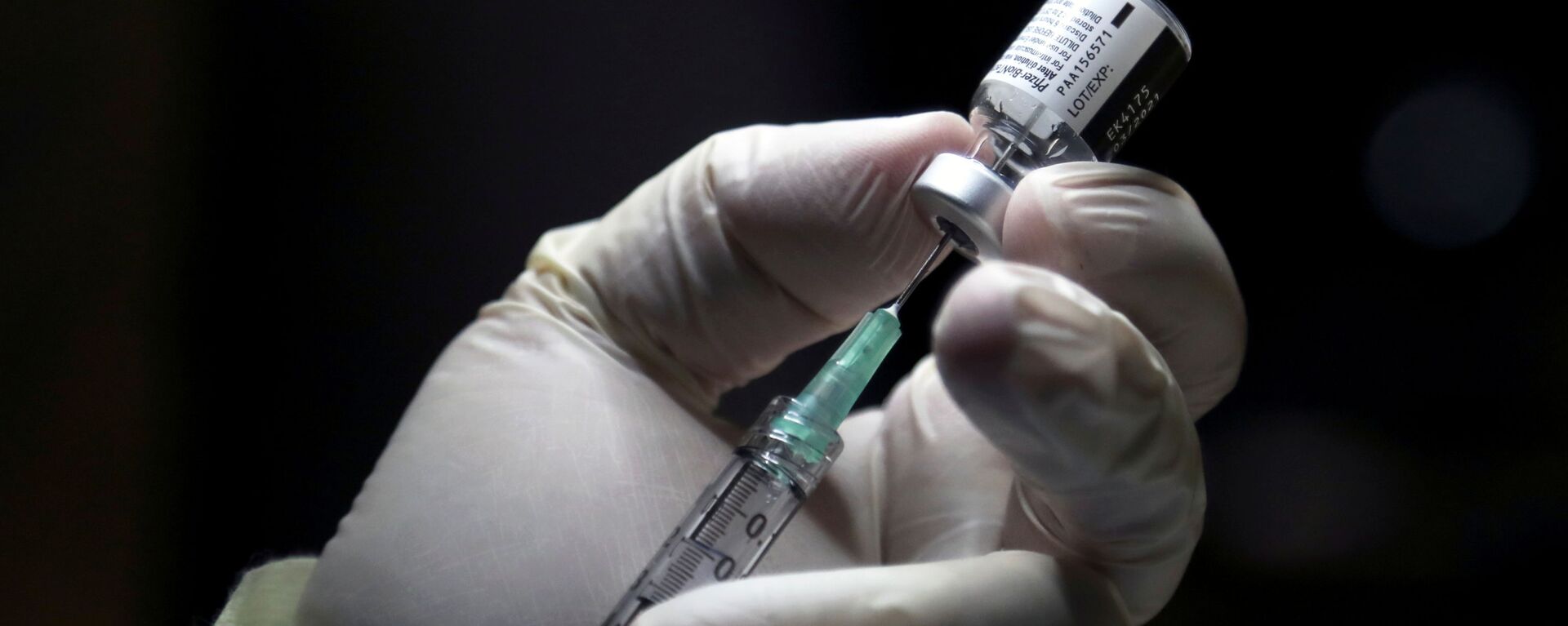
24 December 2020, 06:01 GMT
'Compelling Evidence Hurdle'
Another tremendous challenge facing the applicants for compensation is gathering “compelling, reliable, valid medical and scientific evidence” to prove they suffered a serious injury coming as a “direct result” of the COVID-19 vaccine. There are several reasons this is extremely challenging: first, the COVID-19 pandemic has been around only a short time compared with various other illnesses that humanity has been vaccinated against. The National Vaccine Injury Compensation Program for resolving vaccine injury petitions deals with jabs fighting such diseases.
Unlike with, say, smallpox countermeasures, the US government has no published table specifying injuries that are associated with the COVID-19 vaccines.
COVID-19 vaccination injury, unless diagnosed immediately after the jab, can purportedly be hard to detect, claim medical professionals. Not enough patient data has been gathered around vaccination injury, which makes proving your point very difficult for a claimant. There have also purportedly been concerns among medical professionals that information concerning vacccine injury could be seized upon by the anti-vax movement.
Overall, HRSA Data showed that of 706 COVID-19 vaccine-linked claims, ranging from meningitis, Guillain-Barre syndrome, heart attacks, seizures and, ultimately, death to have been deliberated over by the CICP, 97 percent have been
rejected. Even in the case of the 22 applicants that were successful, 18 have still not yet been told what cash payment they can expect.
The CICP program is, "the payer of last resort and can only reimburse or pay for reasonable medical services or items, or lost employment income that is not covered by other third-party payers, such as health insurance, Veterans' Affairs benefits, or Workers’ Compensation," a spokesman was cited as telling US media.
"The countermeasures program is basically a black hole. It’s your right to file and lose. I don't think it was ever anticipated to handle the number of vaccinations that have happened under COVID," Renee Gentry, Director of the Vaccine Injury Litigation Clinic at George Washington University Law School was cited as saying.
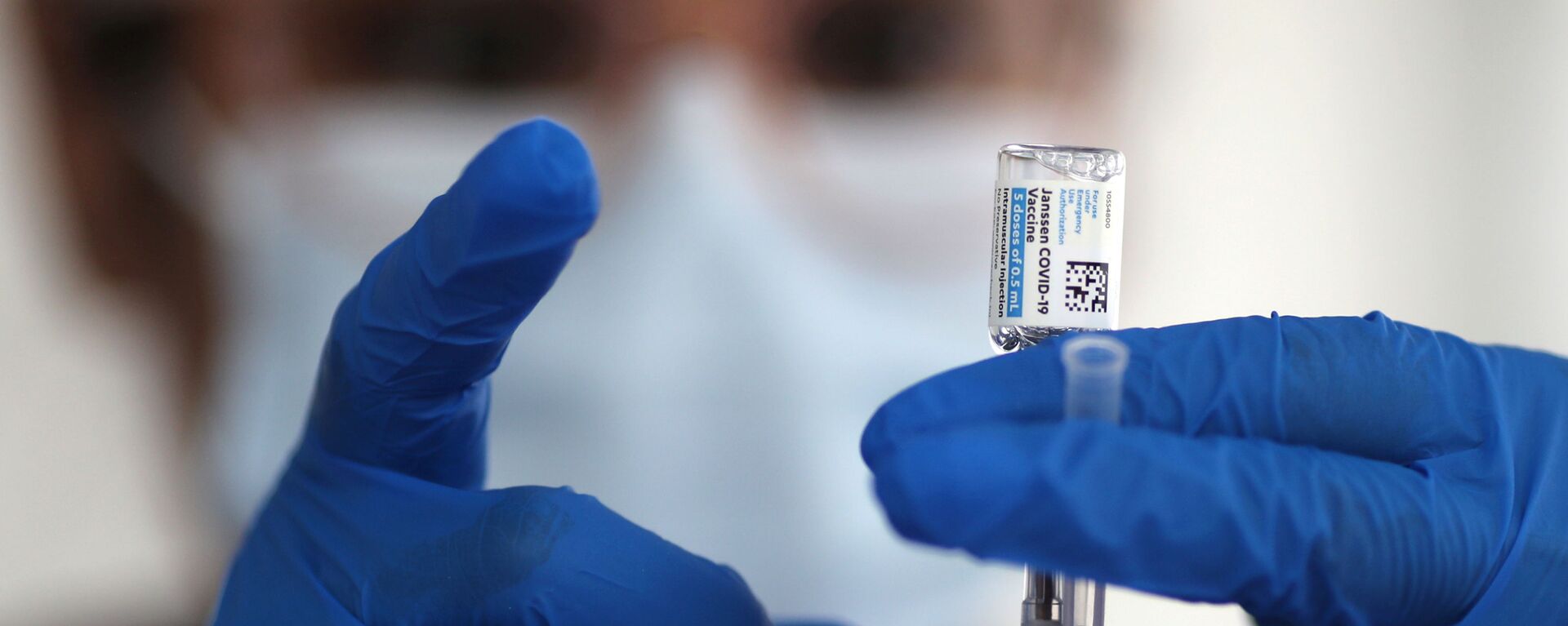
15 September 2022, 10:21 GMT
